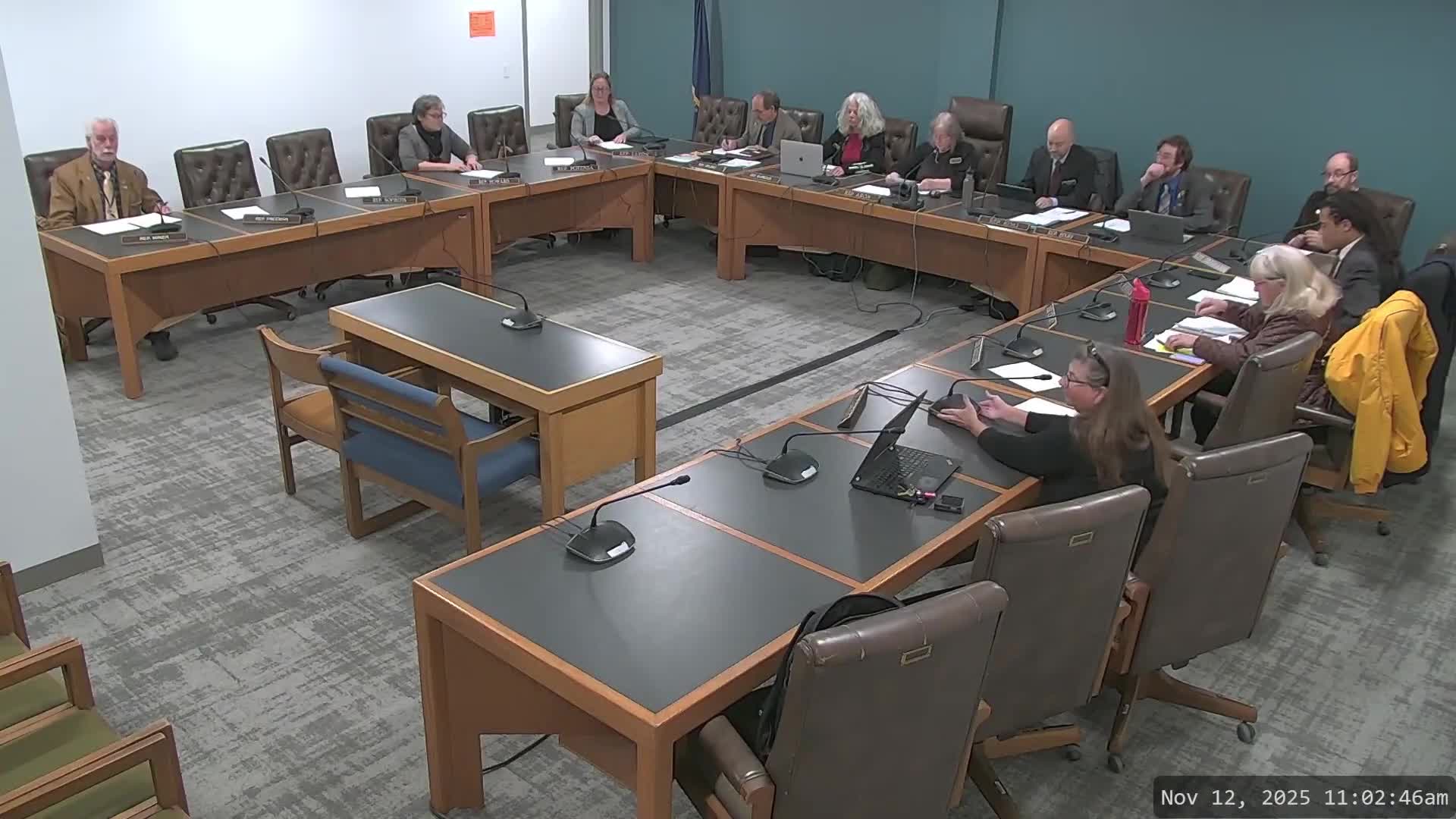House Environment and Agriculture panel advances bill allowing small farms to sell cuts from on‑farm slaughter with strict labeling and limits
Get AI-powered insights, summaries, and transcripts
Subscribe
Summary
The House Environment and Agriculture Committee voted to advance HB 396 with amendment 2025-3090h, a measure that would let small New Hampshire producers sell cuts of beef, swine, sheep and goats processed at non‑USDA facilities under new state requirements for registration, labeling and refrigeration.
The House Environment and Agriculture Committee voted to advance HB 396 with amendment 2025-3090h, a measure that would let small New Hampshire producers sell cuts of beef, swine, sheep and goats processed at facilities not certified by the United States Department of Agriculture, provided they meet new state rules on labeling, refrigeration and processing.
Representative Barbara Comteuil, the amendment sponsor, told the committee the redraft clarifies that the measure applies to cuts rather than “meat food products,” reinstates a previously deleted subsection and separates labeling language for amenable and non‑amenable species so the statute accurately reflects which animals remain subject to federal inspection law. “We need something done for the small farmer,” Comteuil said, arguing the change helps farms move toward year‑round production and gives consumers more local options.
Why it matters: The amendment explicitly requires registration and labeling that informs buyers the product is not USDA‑inspected and acknowledges the potential conflict with federal law. Department of Health and Human Services officials warned the committee DHHS does not inspect USDA‑exempt custom facilities and that state oversight for on‑farm processing would be minimal absent a complaint or an outbreak. “There is very little regulatory oversight as to what is happening on farm,” Colleen Smith, Bureau Chief for the Bureau of Public Health Protection, said, noting the agency’s inspection authority is limited for exempt facilities.
What the amendment does: Sponsors said the redraft (amendment 2025-3090h) narrows the scope in several ways: it (1) excludes ground meat for amenable species (cuts only), (2) requires carcasses be placed into refrigerated storage within a refrigeration‑time standard rather than relying on a seasonal window, (3) provides for a designated slaughter site that meets sanitary conditions, and (4) requires farmers who opt in to register with the state so officials and buyers know which farms are selling non‑USDA inspected cuts. Representative Bixby explained the change from a September‑April seasonal restriction to a refrigeration requirement: “We can’t really depend on September being cold anymore,” she said, adding a temperature‑based standard is more reliable.
Safety, liability and federal law: Lawmakers split on public‑safety and legal risk. Representative Gruber and others cautioned the approach could create liabilities for farmers and that state agencies might be constrained from assisting producers who are knowingly out of compliance with federal rules. Representative Gruber said she feared the change could cause harm and bad publicity that would hurt farmers. In contrast, supporters including Representatives Minor, Wheeler and King argued the changes address practical bottlenecks in processing capacity and increase consumer choice and economic opportunity for small producers. Representative King said lowering costs for local food and helping “the little guy” compete were important policy goals.
Outside input: Rob Johnson, policy director for the New Hampshire Farm Bureau, said the bureau recently discussed a policy opposing state regulations that would allow non‑USDA inspected product in retail channels until federal rules change; that resolution was voted down and the organization will review the committee language further before taking a position.
Votes and next steps: The committee approved amendment 2025-3090h on a roll call and later voted 9–3 to pass HB 396 with that amendment. Members agreed to draft a majority and minority report; the committee retained the bill for handling on veto day and further consideration.
The committee’s action does not change federal law. Supporters and opponents said the state vote is intended as a statement of policy and to create a pathway for small producers; opponents stressed the possibility of federal enforcement and limits on state agencies’ ability to assist producers operating in conflict with federal statutes.
